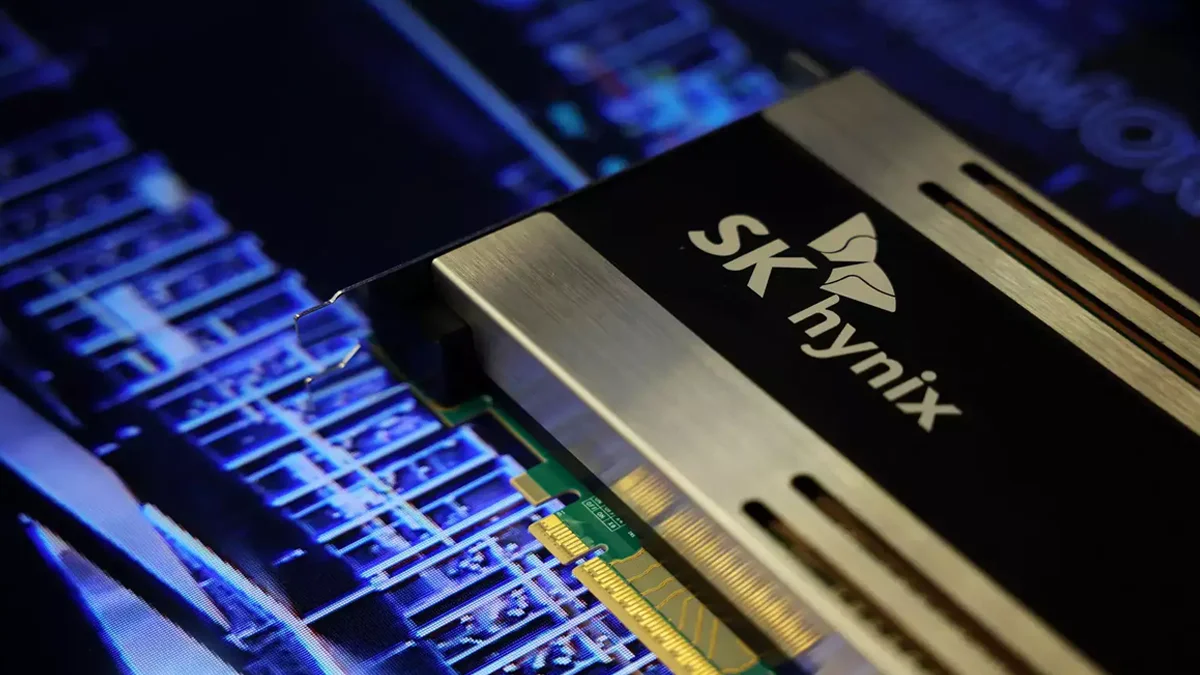Necessary Always Active
Necessary cookies are required to enable the basic features of this site, such as providing secure log-in or adjusting your consent preferences. These cookies do not store any personally identifiable data.
|
||||||
|
||||||
|
||||||
|

Some of SK Hynix customers have filed orders in readiness of the upcoming US tariffs on semiconductors, Reuters reported. SK Hynix is the world’s second-largest memory chip manufacturer. The early orders point to the impact that SK Hynix’s US tariffs could have on the semiconductor industry globally. The tariffs could also affect SK Hynix’s global competitiveness
Already, US chip manufacturers like ScanDisk, Micron, and China’s YMTC have started increasing prices of memory chips due to rising demand in the AI industry. US President Donald Trump has committed to impose duty on semiconductor imports by up to 25%.
“Fears that the US may impose semiconductor tariffs in April have led to preemptive transfers of semiconductor inventory to the United States. It is not yet known if the tariffs will actually be imposed; if this materialises, it could lead to higher prices for set products, which could dampen demand,” the Nomura reported this week.
AI chip maker Nvidia relies on SK Hynix chip orders to meet its supply needs. Speaking during the annual shareholders’ meeting, SK Hynix’s CEO Kwak Noh-Jung said he expects demand for its high bandwidth memory (HBM) chips to rise significantly this year. Early this year, the company forecasted that sales from these chips would double this year.
“Our HBM sales for 2025 have already been sold out, and we plan to finalise sales with customers for the 2026 volume within the first half of this year to further strengthen revenue stability,” said Noh-Jung.
There were fears that AI hardware spending could slowdown in January after Chinese AI startup DeepSeek claimed it had developed AI models at a much lower price. This changed after Nvidia reported strong demand for AI chips last month.
“This could likely have a positive impact on medium-to-long-term demand for AI memory chips. From our perspective, we don’t see DeepSeek slowing down demand for high-performance accelerators or HBM,”Noh-Jung added.
Recently, the company’s Global Sales and Marketing Head Lee Sang-rak attributed the favourable semiconductor market to the pull in effects and reduced customer inventory. Sang-rak was however unclear whether this trend will continue.
SK Hynix had projected a 10% to 20% dip in its NAND and DRAM flash memory chip shipments in quarter one of this year. There is a possibility that US tariffs could push the price of semiconductor products up. This could benefit the South Korean chip maker if it sustains high SK Hynix sales and manages to increase production.
The latest TrendForce report shows that SK Hynix products are the only ones that have experienced price hikes. Prices of other chips and modules like DDR5 have mainly stabilized. This means that the South Korean chip manufacturer holds some pricing power in the market. With the tariffs coming up next month, this power may be enhanced even more.
Expanding Production
SK Hynix’s position as a leader in the flash memory chip market could get stronger if its competitors face higher production costs due to US tariffs on semiconductors.
The company holds a 31% global market share for DRAM memory chips and 19% for the NAND chips. Should the Trump tariffs make it costly for its competitors to import these products into the US market, SK Hynix stands to benefit by having a lower exposure to the tariffs.
On the flip side, the tariffs could result in supply chain disruptions should competitors move productions to other countries. SK Hynix plans to set up new factories like the M15X fab. The company will invest about 20 trillion KRW in setting up the faculty at its Cheongju facility.
The new facility is expected to manufacture 1d DRAM memory chips that are critical for SK Hynix’s HBM3E. With the new facility, the company will strengthen its ability to meet the rising demand for memory chips and maintain its global market share.